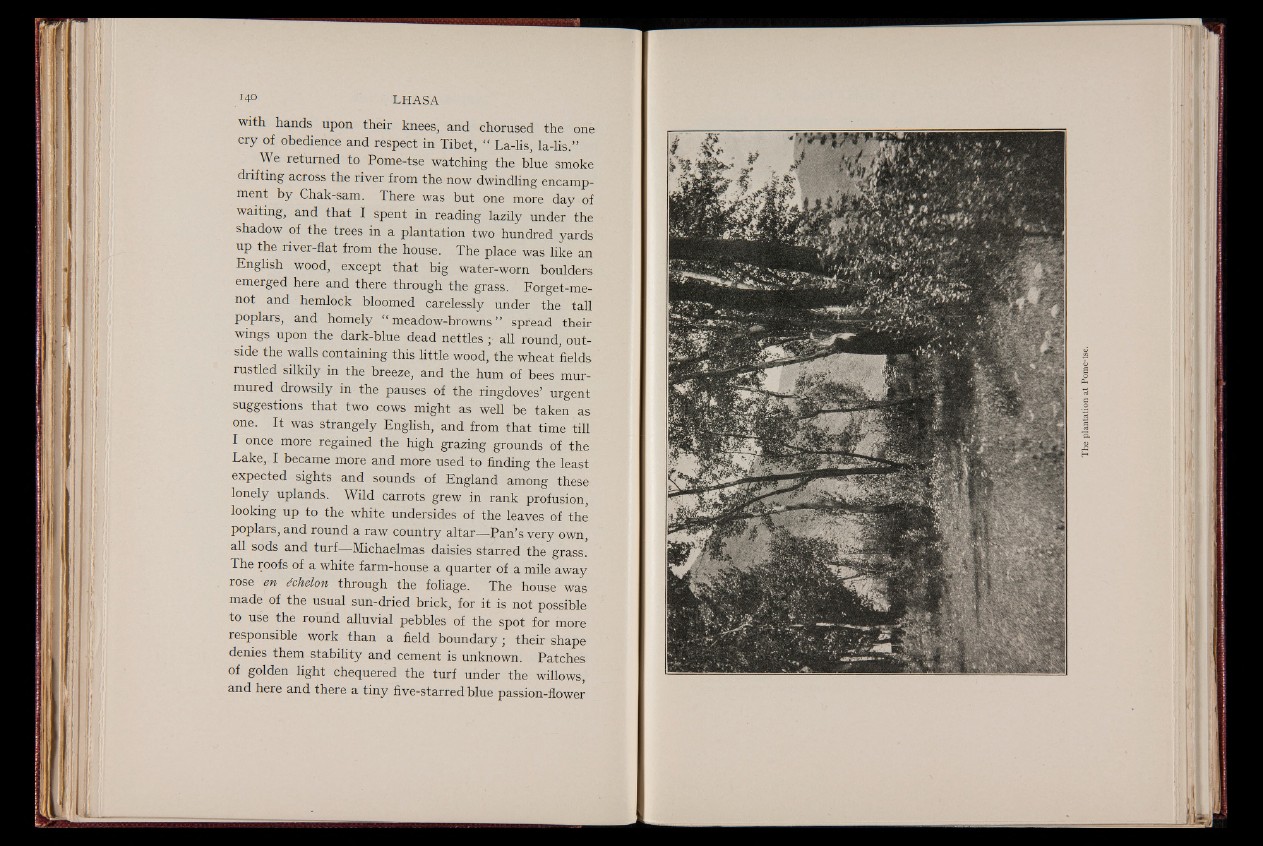
with hands upon their knees, and chorused the one
cry of obedience and respect in Tibet, | La-lis, la-lis.”
We returned to Pome-tse watching the blue smoke
drifting across the river from the now dwindling encampment
by Chak-sam. There was but one more day of
waiting, and that I spent in reading lazily under the
shadow of the trees in a plantation two hundred yards
up the river-flat from the house. The place was like an
English wood, except that big water-worn boulders
emerged here and there through the grass. Forget-me-
not and hemlock bloomed carelessly under the tall
poplars, and homely “ meadow-browns ” spread their
wings upon the dark-blue dead nettles ; all round, outside
the walls containing this little wood, the wheat fields
rustled silkily in the breeze, and the hum of bees murmured
drowsily in the pauses of the ringdoves’ urgent
suggestions that two cows might as well be taken as
one. It was strangely English, and from that time till
I once more regained the high grazing grounds of the
Lake, I became more and more used to finding the least
expected sights and sounds of England among these
lonely uplands. Wild carrots grew in rank profusion,
looking up to the white undersides of the leaves of the
poplars, and round a raw country altar 4 -Pan’s very own,
all sods and turf— Michaelmas daisies starred the grass.
The roofs of a white farm-house a quarter of a mile away
rose en échelon through the foliage. The house was
made of the usual sun-dried brick, for it is not possible
to use the round alluvial pebbles of the spot for more
responsible work than a field boundary j their shape
denies them stability and cement is unknown. Patches
of golden light chequered the turf under the willows,
and here and there a tiny five-starred blue passion-flower